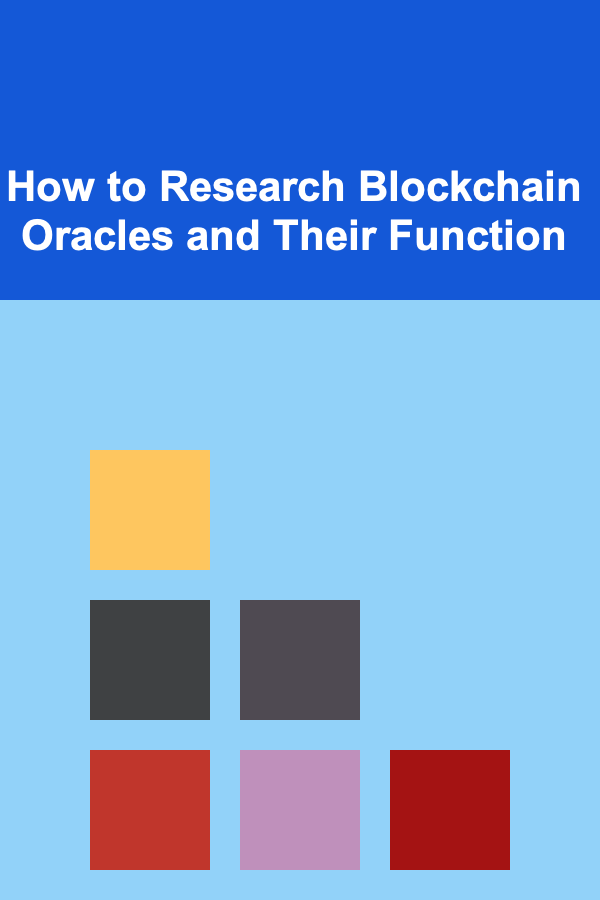
How to Research Blockchain Oracles and Their Function
ebook include PDF & Audio bundle (Micro Guide)
$12.99$9.99
Limited Time Offer! Order within the next:

Blockchain technology is an innovative advancement that has reshaped various industries by introducing decentralized systems. One key aspect of this technology is the integration of oracles, which provide a bridge between smart contracts and the outside world. Oracles enable smart contracts to access real-world data, thereby expanding the capabilities of blockchain networks. In this article, we will explore how to research blockchain oracles, their function, and the essential aspects of understanding this crucial element in blockchain ecosystems.
What are Blockchain Oracles?
At its core, a blockchain oracle is a third-party service that enables smart contracts to interact with external data sources. Since blockchains and smart contracts operate in a closed system, they are inherently unable to access external data directly. Oracles fill this gap by providing verified information from the outside world to smart contracts, which can then be used to trigger specific contract functions.
Smart contracts, written in code, are self-executing contracts where the terms of the agreement between parties are directly written into lines of code. These contracts are immutable and automatically execute when predefined conditions are met. However, without an oracle, a smart contract cannot access real-time information such as stock prices, weather data, or the results of a sporting event. Oracles provide the missing link by feeding this information into the blockchain network.
Types of Blockchain Oracles
Oracles can be classified into various types depending on their source of information and how they interact with blockchain networks. Understanding the different types is essential for researching oracles and their functionality.
1. Software Oracles
Software oracles provide data from online sources such as websites, APIs, and databases. These sources include news websites, stock market data feeds, and IoT (Internet of Things) devices. A common example of a software oracle would be fetching the price of Bitcoin from a popular cryptocurrency exchange, which would then be used to trigger a smart contract action, such as a payment or trade.
2. Hardware Oracles
Hardware oracles are designed to bring real-world data from physical devices or sensors into the blockchain. For example, a hardware oracle might fetch data from a weather station that provides real-time temperature readings. This type of oracle is essential for use cases in which smart contracts need to operate based on information that is only available through physical sensors, such as temperature, humidity, or even GPS coordinates.
3. Inbound Oracles
Inbound oracles bring external data into the blockchain network. This can include information about the price of assets, legal documents, and any real-world data that smart contracts need to process. For instance, a smart contract related to an insurance policy could require an inbound oracle to fetch data about whether a natural disaster has occurred.
4. Outbound Oracles
Outbound oracles work in the opposite direction, sending information from the blockchain to the external world. This could involve triggering an action outside the blockchain based on the result of a smart contract. For example, an outbound oracle might send a payment instruction to a traditional bank if a smart contract related to a loan repayment is fulfilled.
5. Consensus Oracles
Consensus oracles are typically used in decentralized finance (DeFi) and blockchain networks that require multiple data sources for validation. These oracles aggregate data from multiple sources, ensuring that the information being fed into the blockchain is accurate and reliable. Consensus oracles prevent manipulation by comparing and confirming the data from several oracles before passing it into the blockchain network.
6. Cross-Chain Oracles
Cross-chain oracles are designed to facilitate communication between different blockchains. As blockchains continue to grow and develop, it becomes necessary for them to interoperate with one another. Cross-chain oracles can allow data and value to flow seamlessly between blockchains, enabling new use cases such as cross-chain DeFi applications or decentralized exchanges.
The Role of Oracles in Smart Contracts
The function of oracles within the context of blockchain and smart contracts cannot be overstated. Without oracles, smart contracts would be limited to operating solely within the blockchain network, unable to respond to real-world events. Here's how oracles play a pivotal role in enhancing smart contract functionality:
1. Real-Time Data Integration
Many blockchain applications require real-time data to function. This data could pertain to financial markets, commodity prices, weather conditions, or even election results. For example, a decentralized prediction market would need access to real-time data to settle bets based on real-world events. Oracles provide this necessary real-time data, allowing smart contracts to execute actions based on up-to-date information.
2. Triggering Smart Contract Execution
Smart contracts are designed to execute when certain conditions are met. Oracles can supply the external data needed to satisfy these conditions. For instance, an oracle might provide data on whether a payment has been received, triggering a smart contract to release a digital asset or service. Oracles ensure that smart contracts execute autonomously, without human intervention, based on verifiable data.
3. Ensuring Trust in the Blockchain Network
While blockchains are inherently trusted due to their decentralized nature, oracles add an extra layer of trust when interacting with external data. By utilizing consensus mechanisms or employing secure methods for data retrieval, oracles ensure that the data being fed into the blockchain is accurate and tamper-proof. This is especially critical in sectors such as finance and insurance, where the consequences of using faulty data can be significant.
4. Enabling Complex DeFi Applications
Oracles are foundational to the operation of decentralized finance (DeFi) applications. DeFi protocols often rely on accurate price feeds and market data to facilitate lending, borrowing, and trading. Without oracles, these DeFi protocols would be unable to interact with external financial markets, rendering them ineffective. In this context, oracles serve as the backbone for many DeFi applications, making them a crucial part of the blockchain ecosystem.
How to Research Blockchain Oracles
When researching blockchain oracles, it is essential to understand both their technical and practical aspects. Here's a step-by-step guide to help you conduct comprehensive research on oracles:
1. Understand the Blockchain Ecosystem
Before diving into oracles specifically, it is important to have a solid understanding of the underlying blockchain ecosystem. This includes learning about blockchain technology, smart contracts, consensus algorithms, and decentralized applications (dApps). Understanding the fundamental principles of how blockchain works will help you grasp the importance of oracles and their role in the system.
2. Explore Different Oracle Providers
There are several companies and projects that provide oracle services, and each has its unique approach and offerings. Some of the most prominent oracle projects include:
- Chainlink: One of the most well-known oracle platforms, Chainlink provides decentralized oracles to secure data for smart contracts. Chainlink's oracles aggregate data from multiple sources to ensure reliability and accuracy.
- Band Protocol: Band Protocol is another decentralized oracle solution that offers fast and customizable data feeds. Band Protocol aims to reduce reliance on centralized data providers by using blockchain technology to aggregate data.
- Provable: Provable (formerly Oraculos) is a decentralized oracle service that offers data feeds for Ethereum and other blockchain networks. Provable focuses on providing verifiable and accurate data for dApps.
By researching these providers, you can learn more about the different solutions available and how they address common issues such as security, reliability, and data integrity.
3. Understand the Consensus Mechanism
Oracles rely on consensus mechanisms to ensure that the data they provide is accurate and trustworthy. Investigate the different consensus mechanisms used by oracles, including:
- Proof of Stake (PoS): Some oracles use PoS to incentivize data providers to offer truthful information. Validators stake tokens to vouch for the accuracy of the data they provide.
- Decentralized Oracle Networks: Platforms like Chainlink use decentralized oracle networks to aggregate data from multiple independent sources. This makes it harder for any single entity to manipulate the data.
Understanding how oracles utilize consensus mechanisms will give you insight into their security and reliability.
4. Study Use Cases of Oracles
To gain a deeper understanding of the real-world application of oracles, research various use cases where oracles have been implemented successfully. Some key use cases include:
- Decentralized Finance (DeFi): Oracles are critical for price feeds and ensuring that DeFi protocols function correctly.
- Insurance: In parametric insurance, oracles provide weather or disaster data to trigger insurance payouts automatically when specific conditions are met.
- Supply Chain Management: Oracles can track goods and shipments in the supply chain, providing real-time information to smart contracts that automatically update inventory levels or release payments.
By researching use cases, you can see the broad range of applications that benefit from oracles.
5. Explore the Security Risks of Oracles
Since oracles act as intermediaries between blockchain networks and the real world, they can also be vulnerable to manipulation or attacks. A compromised oracle can feed inaccurate data into the blockchain, potentially triggering erroneous contract executions. Research the security challenges associated with oracles, including:
- Sybil Attacks: If an oracle network is not properly decentralized, attackers can create multiple fake nodes to manipulate the data provided.
- Data Manipulation: Oracles that rely on a small number of data sources may be more susceptible to manipulation if one or more of those sources is compromised.
Understanding these risks will help you assess the trustworthiness of different oracle solutions.
Conclusion
Blockchain oracles play a crucial role in expanding the capabilities of blockchain networks by enabling smart contracts to interact with the real world. Through their ability to provide external data, trigger contract executions, and ensure trust and security, oracles are integral to the success of decentralized applications, especially in fields like DeFi, insurance, and supply chain management.
Researching blockchain oracles involves understanding their different types, how they function, and their impact on the broader blockchain ecosystem. By exploring oracle providers, consensus mechanisms, use cases, and security risks, you can gain a deeper understanding of how oracles work and why they are essential for the future of blockchain technology.
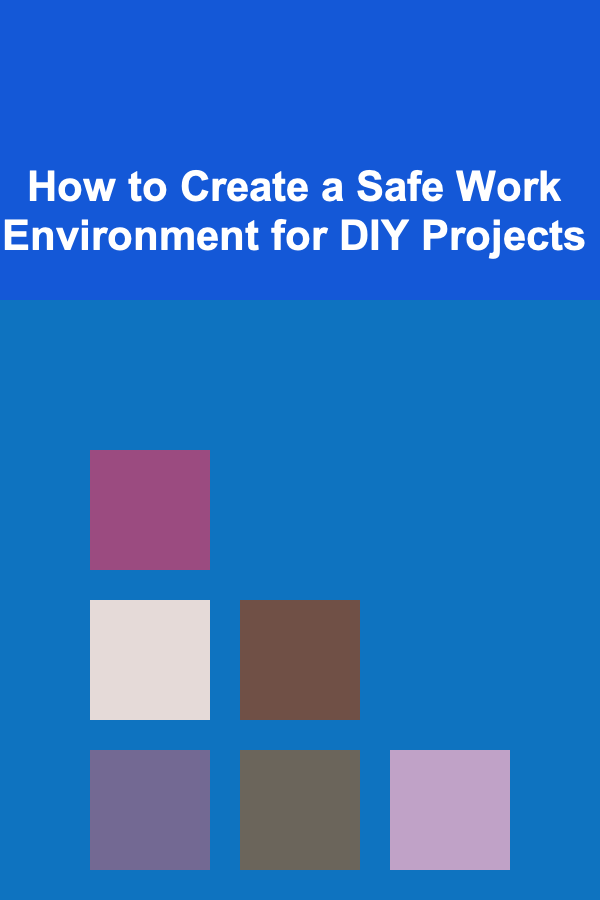
How to Create a Safe Work Environment for DIY Projects
Read More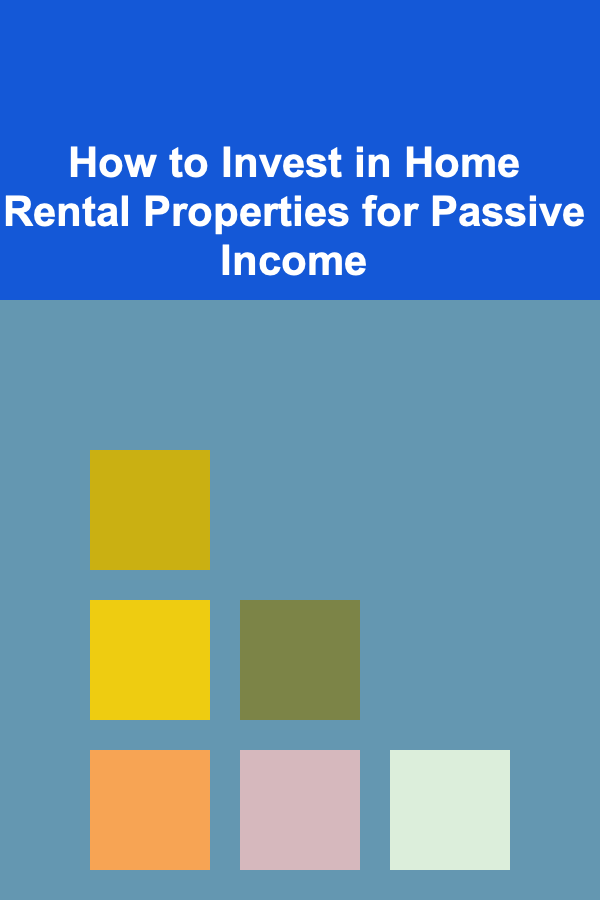
How to Invest in Home Rental Properties for Passive Income
Read More
How to Make Money Online as a Tea Sommelier: 10 Actionable Ideas
Read More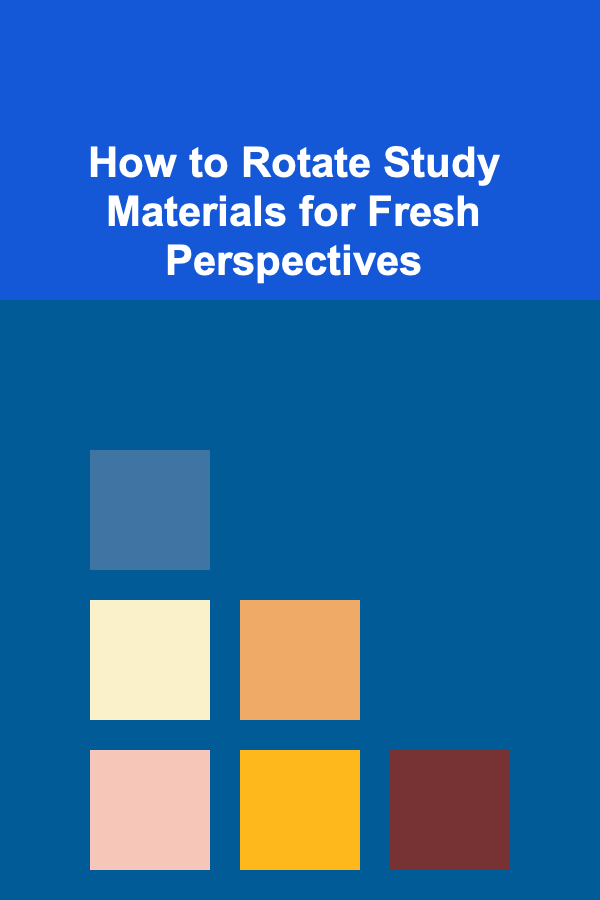
How to Rotate Study Materials for Fresh Perspectives
Read More
How to Soundproof Your Bedroom for a Peaceful Night's Sleep
Read More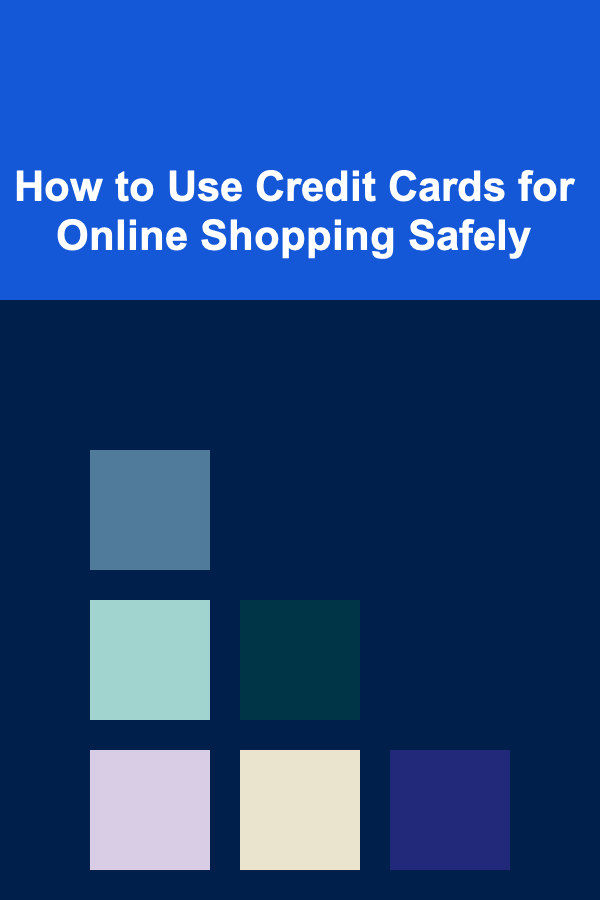
How to Use Credit Cards for Online Shopping Safely
Read MoreOther Products

How to Create a Safe Work Environment for DIY Projects
Read More
How to Invest in Home Rental Properties for Passive Income
Read More
How to Make Money Online as a Tea Sommelier: 10 Actionable Ideas
Read More
How to Rotate Study Materials for Fresh Perspectives
Read More
How to Soundproof Your Bedroom for a Peaceful Night's Sleep
Read More